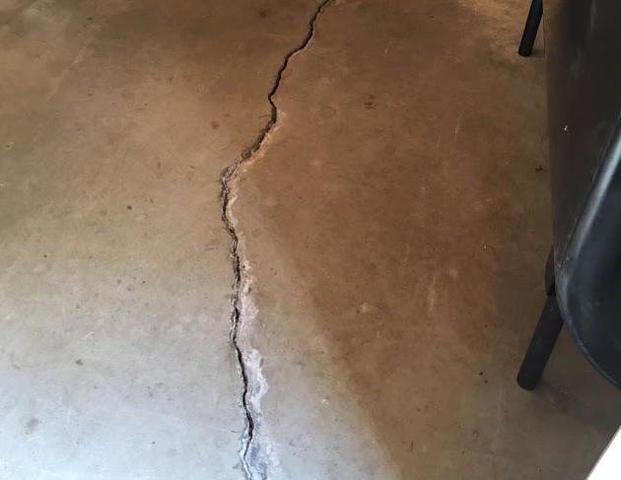Although it may seem daunting repairing cracks in your basement floor is something you can do without going to the expense of hiring a professional.
Raised cracks in basement floor.
When the soil heaving really gets invasive is when interior framed walls load bearing and or non load bearing get pushed upwards affecting the main floor framing system.
Most cracks in basement floors can be repaired by yourself with a do it yourself epoxy concrete crack repair kit.
Newly poured concrete shrinks when it dries.
Resolving cracks and unlevel floors caused by soil expansion is a job best left to the pros who may advise and carry out solutions as extensive as replacing the basement floor and or install an.
Tiled floor surfaces generally mirror the level of their substrate.
If a dime can fit into the crack get it checked.
Once a source of moisture exists mold follow.
Any cracks in your basement floor open you to the possibility of water seepage.
If no expansion joints are cut into the concrete floor then shrinkage cracks will likely appear.
If you find cracks in the concrete of your basement don t panic.
You don t want to see step cracks in.
The ground underneath your foundation is full of moisture.
These are quite common.
The good news is most basement floor cracks are normal and don t need to be repaired.
Most times these cracks are referred to as nonstructural settlement cracks but there can be a wide variety of reasons why a foundation cracks cracks can occur due to settlement of the building concrete shrinkage and curing stress and vibrations caused by trains and trucks traveling nearby and bad construction methods.
When there are cracks in your home s foundation it lets pressure force the water up into your basement.
When a slab foundation heaves or settles attached floor coverings move accordingly.
It s fact that many houses develop cracks after they re built.
As it dries the concrete begins to shrink.
Basement floors crack for a many reasons.
These cracks are part of the natural drying process for concrete.
There are different types of cracks step vertical horizontal along walls and in basement floors.
Because basement floors are poured after the walls are poured the concrete where they meet doesn t always bond completely and this is a common spot for a crack to appear when the house settles.
Heaving can cause cracks in the basement floor slab and uneven floors which can make finishing a basement much more difficult.
Raised tiles or uneven floor surfaces on opposite sides of a crack might indicate slab foundation damage.
The basement floor doesn t support the weight of the home so cracks in the floor won t affect the home s structural integrity.




























